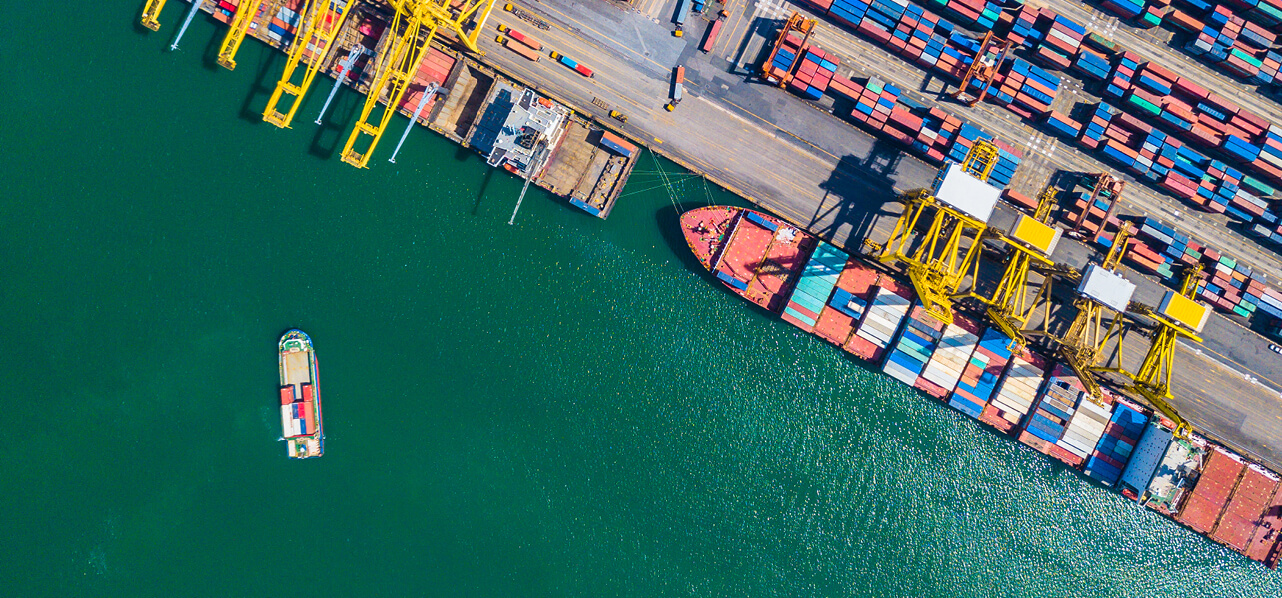Partner London
"…being an operator required more than arranging crew to man the barge or operate the machinery…"
BACKGROUND
The dispute arose out of an incident involving a cargo ship, a dumb barge and some electricity cables owned by RTE during a storm in the English Channel in 2016. The barge was moored in the channel whilst carrying rock to repair a railway line between Dover and Folkstone. It dragged its anchor during the storm and allegedly damaged the electricity cables. The two vessels also collided.
The barge was owned by Splitt Chartering APS and chartered to Stema A/S. Stema UK had entered into the sale contract with Network Rail to supply rock armour. Splitt and the two Stema companies were all part of the same group (the “Stema Interests”). Stema UK also prepared a method statement for the repair project, which included identifying where the barge would anchor on arrival off Dover. An out of date Admiralty Chart was used which did not show the electricity cables. The proposed mooring location was close to the cables.
LEGAL PROCEEDINGS
Proceedings were commenced in Denmark, France and England to establish liability for the various heads of loss and damage. The English proceedings included a claim by the cargo ship against the barge, an action for non-declaration of liability commenced by Stema UK against RTE and the owners of the cargo ship, and limitation proceedings commenced by the Stema Interests.
"…the issue was dealt with by the COA and so cannot be adjudicated on again…"
Stema UK argued that it was entitled to limit liability as an operator or manager of the barge. The Court of Appeal (“COA”) ultimately rejected that argument on the basis that being an operator required more than arranging crew to man the barge or operate the machinery (as Stema UK had done) and concluded that Stema UK was acting on behalf of Splitt and Stema A/S. The court declared in December 2021 that Stema UK “is not entitled to limit liability… pursuant to section 185 of the Merchant Shipping Act… and is not entitled to a general limitation decree in the form ADM19 or at all”. The Supreme Court refused permission to appeal.
Further proceedings were brought by RTE and National Rail against the Stema Interests in November 2022, which included allegations of negligence against Stema UK. The Stema Interests sought to limit their liability. RTE challenged Stema UK’s right to limit its liability on the basis that it had already been decided by the COA that it could not limit (res judicata). Specifically RTE alleged:
i. the Court of Appeal’s order was final;
ii. cause of action estoppel and issue estoppel applied; and/or
iii. it was an abuse of process as per Henderson v Henderson.
DECISION
"…this is a case where an order is not remotely ambiguous…"
Mrs Justice Cockerill DBE held that Stema UK was not permitted to claim limitation under Article 1(4). The main reason for reaching this conclusion was that the issue was dealt with by the COA and so cannot be adjudicated on again. The judge rejected a suggestion from Stema UK that the order had to be construed or interpreted against the broader background (including that the Article 1(4) argument in the earlier proceedings had been withdrawn). There are clear authorities that where an order is unambiguous, there is no room for construction. The COA order was drafted broadly referring to section 185 of the Merchant Shipping Act 1995 and the entire loss from the incident. As the judge said “this is a case where an order is not remotely ambiguous”.
A decision on RTE’s other points of challenge then became contingent but the judge dealt with them briefly. Although the law was straightforward, it was welcome clarification of its application to the unique nature of claims for limitation of liability.
Cause of action estoppel
In relation to cause of action estoppel, the discussion centred around whether a limitation claim was a procedural device or a substantive claim such that it gave rise to a cause of action for estoppel purposes. The court held that a tonnage limitation claim differed from time bar limitation in that the latter was purely a defence and bar to remedy. A tonnage limitation claim could give rise to an independent action.
"A tonnage limitation claim could give rise to an independent action."
Stema UK put forward arguments distinguishing the earlier proceedings on the basis that it was concerned with Article 1(1) limitation and not Article 1(4) limitation as the present proceedings were. The court rejected these points because they related to the elements of the arguments, rather than simply the cause of action, which is defined as a “factual situation the existence of which entitles one person to obtain from the court a remedy against another person” (Diplock LJ in Letang v Cooper [1965] 1 QB 232). Such points could have been more effective in relation to an issue estoppel discussion, but that only arose if cause of action estoppel was not established.
The court held that cause of action estoppel did apply to Stema UK’s limitation claim. It was further reinforced by the fact that Stema UK had raised an Article 1(4) limitation claim before the COA but it had been withdrawn after the COA expressed concerns about this line of argument.
Abuse of process (Henderson v Henderson)
The principle set out in the Henderson case (and others) was that where a point could and should have been raised earlier, it may be an abuse of process to raise it later. It is not simply enough that it could have been raised earlier, and where both “could and should” are present, there was always consideration of whether in the circumstances the conduct was abusive.
"…the contravention of the public interest in finality, made it an abuse of process…"
The judge considered that the Article 1(4) point could have been raised earlier and that Stema UK’s suggestion that limitation could not be decided until after liability ran counter to the established practice and procedure in limitation claims. The ‘should’ question was also answered in the affirmative from both a legal and practical perspective. The judge considered that although this was not a classic case of harassment or oppression, various factors including the waste of time and resources, and the contravention of the public interest in finality, made it an abuse of process to allow the Article 1(4) claim to continue.
DISCUSSION
Whilst this judgment addresses the specific details of pursuing a limitation claim, the guidance provided on issues of court procedure and approach apply generally. Whatever the reasons for Stema UK attempting to take a two stage approach to its limitation claim, the outcome provides a reminder for parties to consider all potential avenues at the earliest opportunity. Where there is concern about what can and should be dealt with at what stage, such issues should be flagged at the case management conference for discussion with the judge and other parties.
Looking at the particular tonnage limitation issues, the guidance provided by this judgment is helpful for parties working through the tricky business of allocation of liability after an incident. Limitation of liability can assist in focusing and reducing the cost of this process and so all clarification will benefit the parties and the courts.
Key contacts
Key contacts
Partner London
Knowledge Counsel London
Senior Associate London






